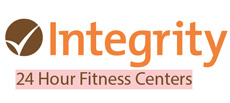Where Optimal Health Is The End Result!
The Ultimate Power Trip: Forgiveness
Tue, Sep 24, 2013
at 9:54AM
The Ultimate Power Trip: Forgiveness
I think it was Alexander Pope who said, "To err is human; to forgive, divine."
True. For several reasons.
We all know that we should forgive everyone. Friends. Enemies. The guy who cut us off in traffic. The snarky customer, the disapproving in-law, the wayward spouse, the rebellious child. The worst of the evil-infected interloper? Yes, that person, too. We should offer the grace that we hope to receive from God one day; and as Christ said, we must do so seventy-times-seven times.
Wow. That's a lot to expect, especially from a bunch of rebellious siblings who enjoy the power of holding another's debt. Be honest: Refusal to forgive really has much less to do with being wounded, much less to do with pride, than it does with trying to enslave someone's dignity - stripping the debtor of power, and assuming it for yourself.
True. For several reasons.
We all know that we should forgive everyone. Friends. Enemies. The guy who cut us off in traffic. The snarky customer, the disapproving in-law, the wayward spouse, the rebellious child. The worst of the evil-infected interloper? Yes, that person, too. We should offer the grace that we hope to receive from God one day; and as Christ said, we must do so seventy-times-seven times.
Wow. That's a lot to expect, especially from a bunch of rebellious siblings who enjoy the power of holding another's debt. Be honest: Refusal to forgive really has much less to do with being wounded, much less to do with pride, than it does with trying to enslave someone's dignity - stripping the debtor of power, and assuming it for yourself.
More than anything else, though: Hanging on to the forgiveness you should offer to others is also a really dumb thing to do to yourself, because in doing so, you destroy your own power.
I recently found myself on a see-saw of both sides of this spiritual drama. Act One: I was wronged; and, when no apology was offered, I got upset. After an evening of Honeymooners reruns, frozen yogurt, and deep (albeit reluctant) reflection, I came to terms with the fact that while I was on the receiving end of some bad treatment, I had no right to nurture my resentment. More than that, my nasty mood about the event was my fault, and no one else's, and I needed to apologize for that.
So the next day, I did. And in forgiving the initial offense, and then taking responsibility for my bad reaction, it was a sincere mea culpa that I offered - but then, I realized I was suddenly thrown into an entirely different role in this drama.
Act Two: Even as I write this, I am not forgiven. I am shunned by the person who wronged me. Sure, I heard the words, "Fine. Whatever. I forgive you," delivered in a monotone (and with an icy stare). Then... Well, let's just say, it's gotten complicated. Hurtful stuff, this, and all of which led me to...
Act Three: It put me back into the position of being wronged.
Okay, now, I again had (what I thought was) power. And I started getting headaches, and stressing over the little things, and I noticed that my idle thoughts - and too often, my active thoughts - revolved around my resentment toward this person. My relationships with others became difficult, my work was suffering, and I couldn't even enjoy my frozen yogurt, because I was distracted with needless "issues" - ones which will apparently remain unresolved. I did my best, but it's out of my hands.
Read that last sentence again.
So, on the evening that I wrote a grand total of two paragraphs of my next novel (and deleted them because they were garbage), it finally occurred to me: This is the opposite of power.
I made the conscious choice to let the entire thing just go away from my life. It had to stop someplace. It took a while. It took many moments of remembering what the person who refuses to forgive me had once meant to me; but when I finally, truly let it go, I experienced an overwhelming feeling of genuine power. My headache went away, I couldn't stop smiling, and I had a wonderful, productive day. Not to mention, many great days since. More than cutting the drama off, and moving on with life, nothing slams the door on evil like refusing to hold a debt. In offering grace to another, you cut the ties through which you can be shamed - and thus, controlled.
Preachers, God bless 'em, will remind you that it's a terrific gift to yourself, possessing a forgiving nature; however, not many of them go into enough detail as to why. Since the natural human being is drawn to that which will best benefit him, you need to know this: Truly forgiving another is a real hoot. It's the ultimate empowerment trip. I'm not talking about the passive-aggressive charade of, "Fine. Whatever. I forgive you," but the real thing: Grace, offered to the one who has hurt you - no charge.
Of course, when you forgive, you'll feel some sadness if the wrongdoer refuses to repent. And if they do repent, you'll have to allow for trust to be rebuilt, because forgiveness doesn't require you to go through life with a "Kick Me" sign on your backside.
And when you seek forgiveness, do all you can do, and then relish the freedom that follows. From there, it's out of your hands.
No matter which side of the battle you're on, if you feel like your pride has been impacted, or that your dignity is damaged, then you haven't fully released the debt - because that "gift to yourself", so often described as a feeling of relief, a lightness of spirit, is actually a reclaiming of your dignity.
That's real power. And it's absolutely divine.
See you next time. 'Til then -
Jenna
I recently found myself on a see-saw of both sides of this spiritual drama. Act One: I was wronged; and, when no apology was offered, I got upset. After an evening of Honeymooners reruns, frozen yogurt, and deep (albeit reluctant) reflection, I came to terms with the fact that while I was on the receiving end of some bad treatment, I had no right to nurture my resentment. More than that, my nasty mood about the event was my fault, and no one else's, and I needed to apologize for that.
So the next day, I did. And in forgiving the initial offense, and then taking responsibility for my bad reaction, it was a sincere mea culpa that I offered - but then, I realized I was suddenly thrown into an entirely different role in this drama.
Act Two: Even as I write this, I am not forgiven. I am shunned by the person who wronged me. Sure, I heard the words, "Fine. Whatever. I forgive you," delivered in a monotone (and with an icy stare). Then... Well, let's just say, it's gotten complicated. Hurtful stuff, this, and all of which led me to...
Act Three: It put me back into the position of being wronged.
Okay, now, I again had (what I thought was) power. And I started getting headaches, and stressing over the little things, and I noticed that my idle thoughts - and too often, my active thoughts - revolved around my resentment toward this person. My relationships with others became difficult, my work was suffering, and I couldn't even enjoy my frozen yogurt, because I was distracted with needless "issues" - ones which will apparently remain unresolved. I did my best, but it's out of my hands.
Read that last sentence again.
So, on the evening that I wrote a grand total of two paragraphs of my next novel (and deleted them because they were garbage), it finally occurred to me: This is the opposite of power.
I made the conscious choice to let the entire thing just go away from my life. It had to stop someplace. It took a while. It took many moments of remembering what the person who refuses to forgive me had once meant to me; but when I finally, truly let it go, I experienced an overwhelming feeling of genuine power. My headache went away, I couldn't stop smiling, and I had a wonderful, productive day. Not to mention, many great days since. More than cutting the drama off, and moving on with life, nothing slams the door on evil like refusing to hold a debt. In offering grace to another, you cut the ties through which you can be shamed - and thus, controlled.
Preachers, God bless 'em, will remind you that it's a terrific gift to yourself, possessing a forgiving nature; however, not many of them go into enough detail as to why. Since the natural human being is drawn to that which will best benefit him, you need to know this: Truly forgiving another is a real hoot. It's the ultimate empowerment trip. I'm not talking about the passive-aggressive charade of, "Fine. Whatever. I forgive you," but the real thing: Grace, offered to the one who has hurt you - no charge.
Of course, when you forgive, you'll feel some sadness if the wrongdoer refuses to repent. And if they do repent, you'll have to allow for trust to be rebuilt, because forgiveness doesn't require you to go through life with a "Kick Me" sign on your backside.
And when you seek forgiveness, do all you can do, and then relish the freedom that follows. From there, it's out of your hands.
No matter which side of the battle you're on, if you feel like your pride has been impacted, or that your dignity is damaged, then you haven't fully released the debt - because that "gift to yourself", so often described as a feeling of relief, a lightness of spirit, is actually a reclaiming of your dignity.
That's real power. And it's absolutely divine.
See you next time. 'Til then -
Jenna
------------------------------------------------------
Jenna Brooks is a columnist, coach, and the author of the critically-acclaimed novel, October Snow. Find her at her website, The Senior Contentious Woman.
Bookmark & Share
User Comments
Be the first to comment on this post below!
Previous Article
Next Article
Most Popular Articles
- Kim's Weight Loss Journey with Integrity Health Coaching Fitness Centers & Gyms in NH
- Store Special April 2 - 7
- KARINA'S CREAMY DETOX SOUP RECIPE WITH COCONUT MILK
- SAVE THE DATE & REGISTER!! - TEAM INTEGRITY
- Maple Avocado Coconut Smoothie
- Almond Encrusted Chicken
- At Integrity Health & Fitness Coaching Centers, we are about lasting CHANGE.
- Equanimity: 7 Ways to Stay Calm and Balanced in a Turbulent World
About Integrity
Integrity Health is a franchise company residing in New Hampshire. We specialize in health coaching centers combining fitness with weight loss to optimize and promote optimal health. We are also the national purveyors of the RAMP Metabolic Fitness Prescription licensed by fitness professionals.
We are proud to carry NOW Foods and Supplements at all of our health coaching locations. Get health, stay healthy! GMP Certified for quality assurance!
Follow us!
HEALTH COACHING LOCATIONS

Integrity Fitness & Health Coaching Center 24 Hour Access
491 Main Street
Gorham, NH 03581
491 Main Street
Gorham, NH 03581
Staffed Hours
M-F
10am-5pm
Phone
603-915-9212
FAX
Email

Integrity Fitness & Health Coaching Center 24 Hour Access
1857 White Mountain Highway
North Conway NH 03860
1857 White Mountain Highway
North Conway NH 03860
Staffed Hours
Mon
9am
5pm
Tues
9am
5pm
Wed
9am
5pm
Thurs
9am
5pm
Fri
9am
5pm
Sat
9am
1pm
Phone
603-730-5572
FAX
Email

EZCOACH Fitness Prescription Systems
Solutions For Fitness Centers
Solutions For Fitness Centers
Staffed Hours
Mon-Fri
9am-6pm
EST
Phone
855-550-2348
FAX
Email

